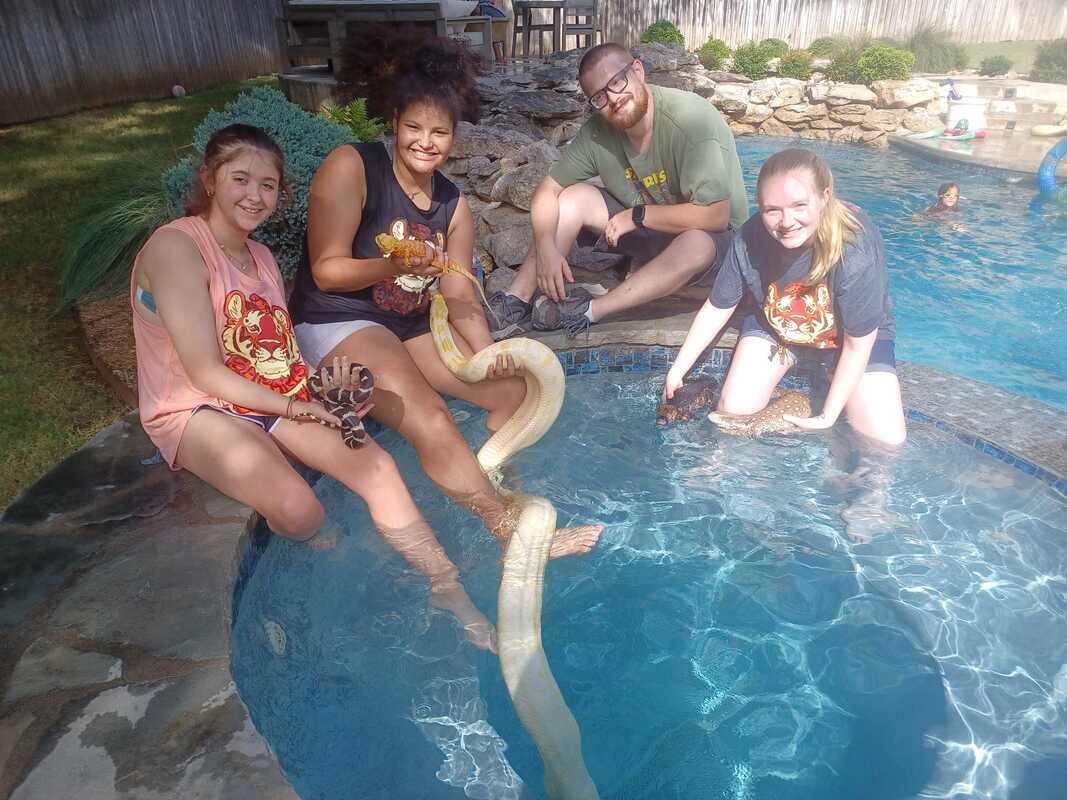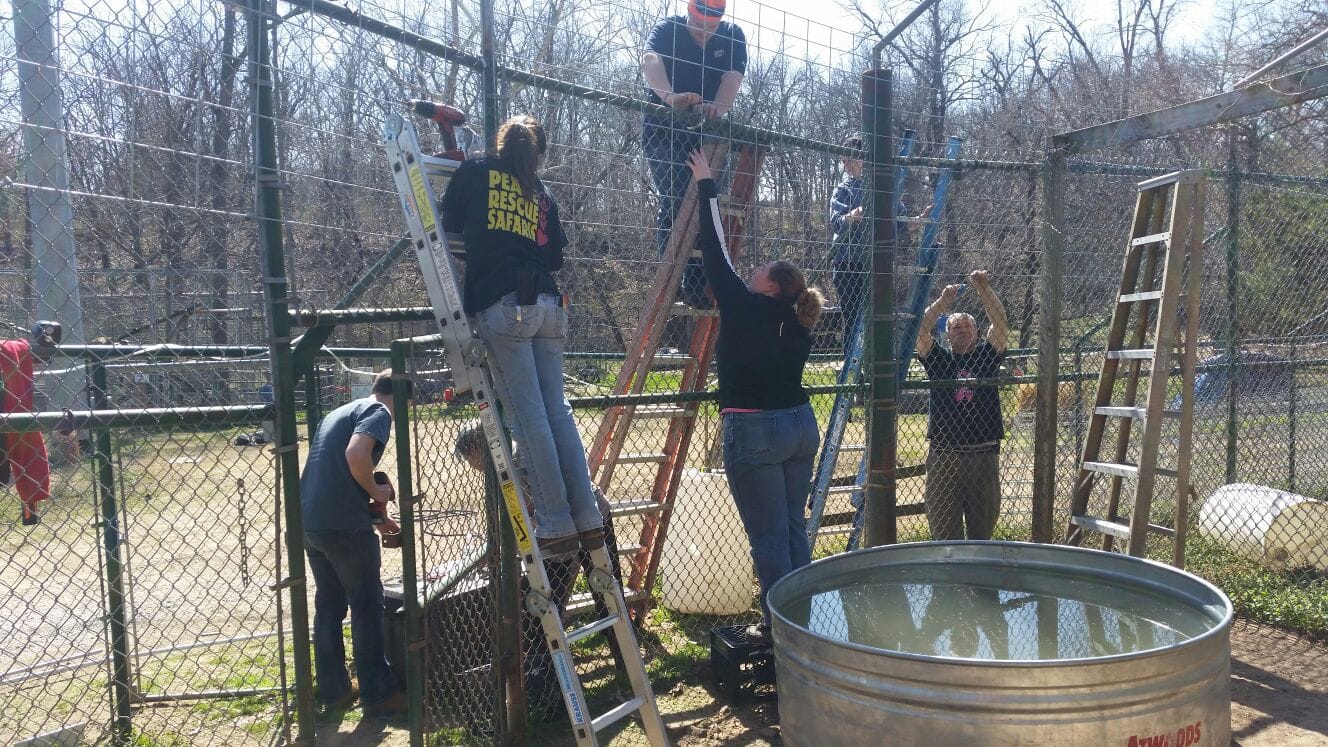Volunteer
A TYPICAL DAY A typical day at the sanctuary involves lots of rewarding manual labor that must be done before we can play with the animals. Such tasks include:
GETTING STARTED
VOLUNTEER LEVELS Volunteers will be trained by lead volunteers to learn how to care for and interact with the animals. Volunteers must work their way up levels to work with certain animals. Lead volunteers will determine levels based on experience, work ethic, maturity, and trust. If a volunteer focuses on one area, their level may not be consistent throughout. Level 1
Note:
What to wear:
|
InternshipPart of our mission is to allow others the opportunity to advance their understanding of the daily duties of a sanctuary through shadowing lead staff in all areas of animal care—such as learning preparation of diets, watering, cleanup, safety lock out systems, and more. Safety is priority. Interns may only interact with the non-aggressive, smaller exotics and assist lead staff on all others from outside the cage.
INTERN SCHEDULE Daily hours of basic duties are 8 AM till 2 PM (unless doing produce pickups, where we share/rotate in doing, leaving at 6 AM). After those hours, some activities may require extra work, such as repair and maintenance, miscellaneous projects, the outreach programs, ZOO 2 You's, and unfinished basic duties, etc. Week One: Hoof stock Week Two: Basic primates (interaction with lemurs only) and small exotics Week Three: Exotic birds, basic reptiles, basic wolves Week Four & Five: Big cats and bears (there will be NO direct interaction with big cats and bears) Please note that during the internship, you must comply with the hours of operation and you must be able to perform basic duties, which include: feeding the animals, scrubbing waters, walking on rocky terrain, raking pens, shoveling feces, basic lifting (grain bags, produce boxes, etc), working in potentially hazardous weather, building and repairing habitats, mowing, organizing, and cleaning. All volunteers and staff share the same basic responsibilities that are mentioned above. Additionally, interns will help with our outreach educational program. HOUSING Housing is available: we have a 4 person bunk room, full bathroom, kitchen, and living area. Interns interested in staying in the house must be approved and accepted by application in advance. In-house animal care and house cleaning are the daily responsibility of interns and must be kept at all times. Intern must have their own cell phone and transportation for their personal affairs. International interns must speak fluent English. All others interns must provide their own housing, communication, and transportation. Expectations Internship Checklist
CLICK HERE for the Internship Program application Day of serviceIs your company, club, or troop looking to donate their time? Or maybe you are part of a club or organization? We have a lot of projects that we would love your help with! Call or email to schedule a day for this and together we can choose a project that would best fit your group. If you have people that specialize in a trade (welding, fencing, etc.), let us know!
Expectations:
|
Rules For Internship & Volunteering
- No drinking and/or non-prescribed drugs allowed on sanctuary property. No smoking in houses, or near animals.
- Any damages to Safari’s property by you must be reported to Management in order to discuss repairs. Damages other than regular daily wear and tear are the responsibility of the volunteer.
- No entering animal pens and areas that are above your volunteer level. For instance, level one volunteers can not enter any primate area unless under the supervision of management.

